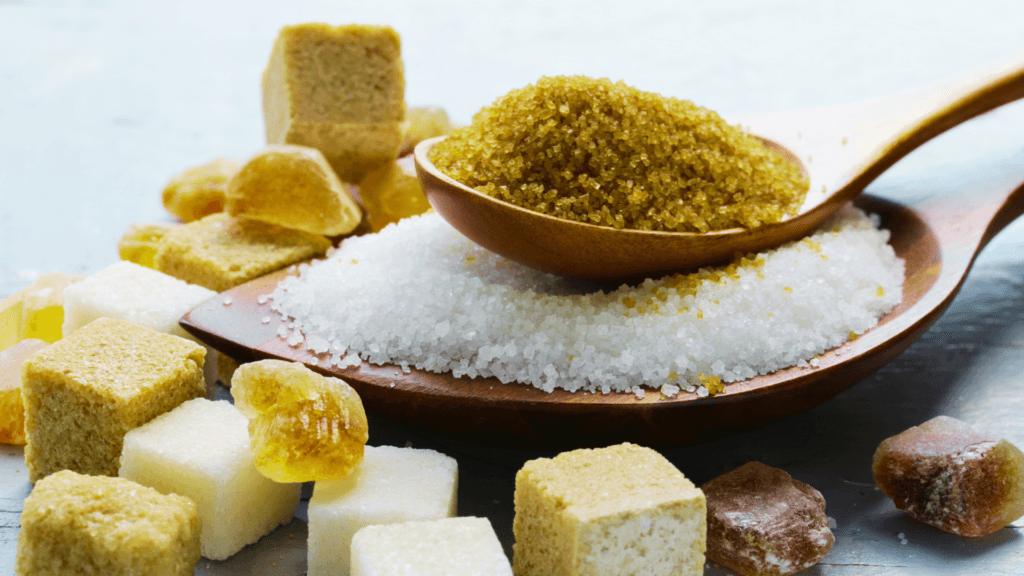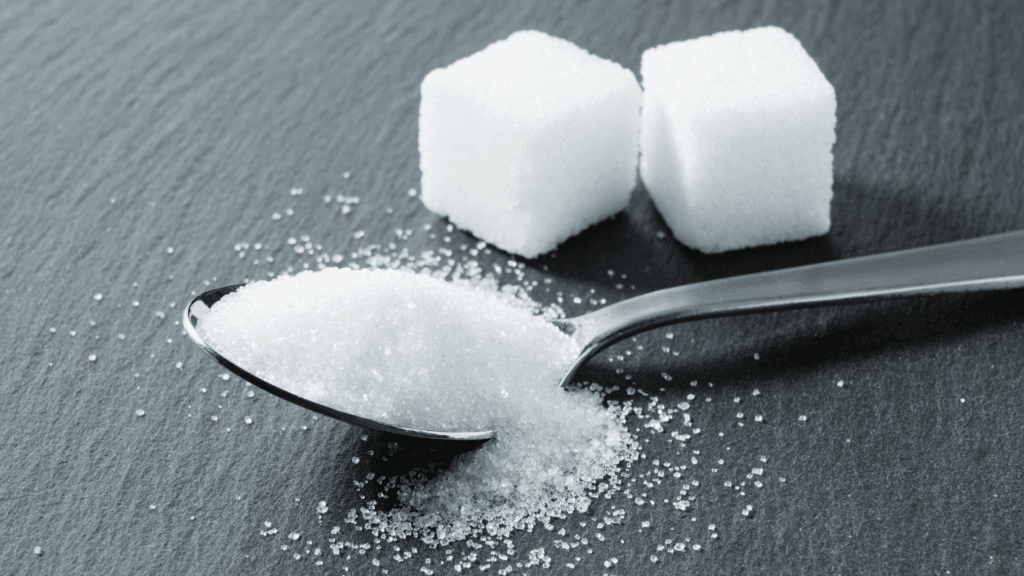
Sweeteners can be a sticky subject. (See what we did there?) If you’re looking for a sugar alternative that won’t send your blood sugar on a rollercoaster ride or compromise your health, you’re in the right place. While many sugar substitutes claim to be healthy, not all of them live up to the hype.
In this guide, we’ll break down the 13 healthiest sweeteners, considering their glycemic index (GI), nutritional benefits, cost, and any other perks they offer. We’ll also suggest vegan-friendly brands where possible.
What Makes a Sweetener Healthy?
Before we dive into the list, let’s define what “healthy” means in the sweetener world. The best options should:
- Have a low glycemic index (to prevent sugar spikes and crashes)
- Be minimally processed (goodbye, artificial chemicals!)
- Provide additional nutrients or health benefits
- Be free of animal-derived ingredients (because, obviously, we’re all about that vegan life)
Now, let’s get into the good stuff!
The 13 Healthiest Vegan Sweeteners

1. Monk Fruit Extract
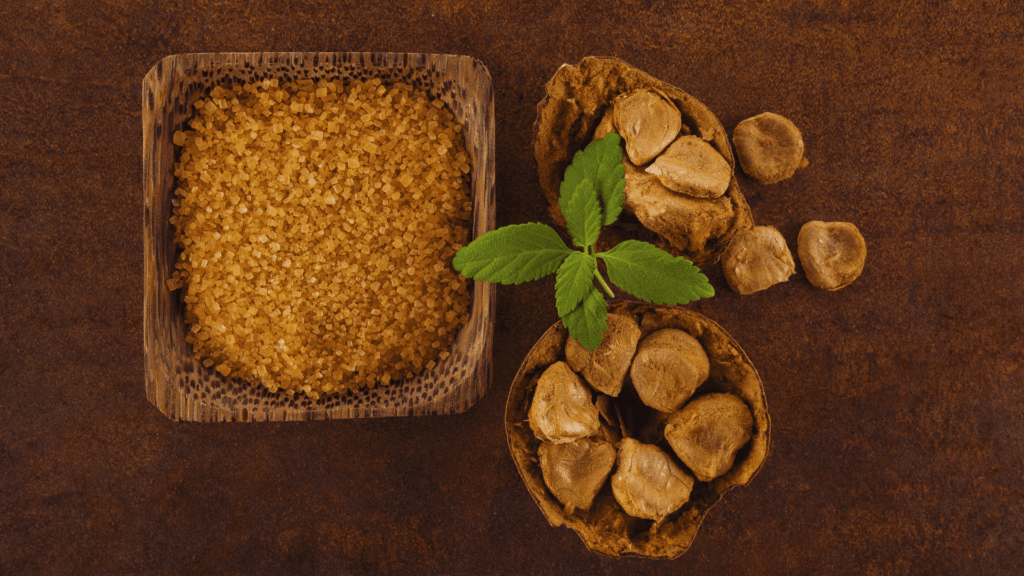
Glycemic Index: 0
Monk fruit sweetener is the rising star in the natural sweetener world, and for good reason. This small round fruit native to Southeast Asia has been used in Traditional Chinese Medicine for centuries, but only recently gained popularity in Western markets.
What makes monk fruit unique is that its sweetness comes from antioxidants called mogrosides rather than fructose or glucose. These compounds are 150-200 times sweeter than sugar but don’t raise blood sugar levels at all.
Health Benefits:
- Zero calories and zero carbs
- Contains powerful antioxidants that may combat free radicals
- Studies suggest potential anti-inflammatory properties
- Won’t contribute to tooth decay like sugar
Best Uses: Beverages, smoothies, desserts, and baking where a concentrated sweetener is needed. Note that it works best combined with other ingredients, as some people detect a slight aftertaste when used alone.
Cost Factor: ★★★★☆ (More expensive than most sweeteners, but a little goes a very long way)
2. Stevia
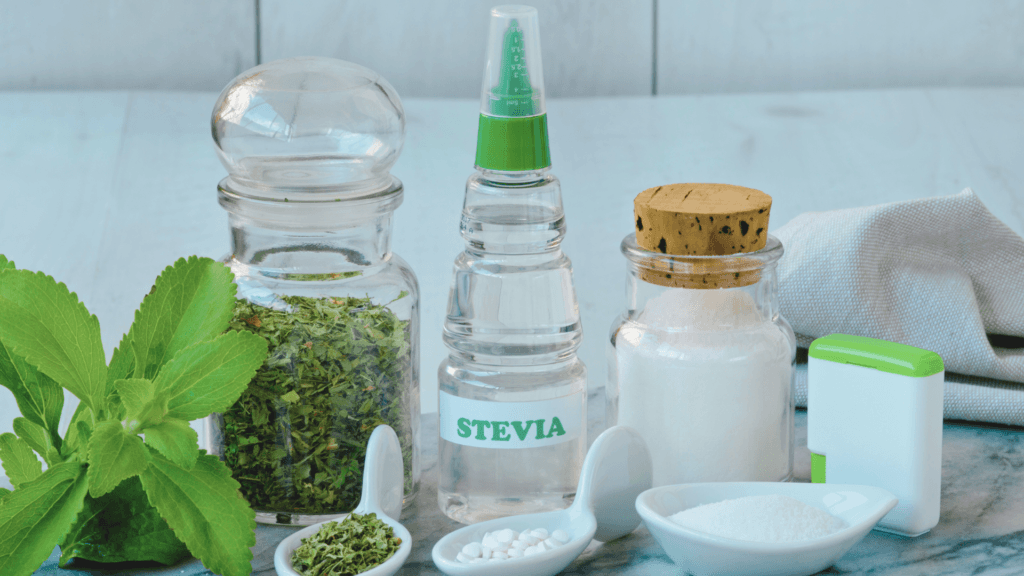
Glycemic Index: 0
Another zero-calorie, zero-glycemic option, stevia comes from the leaves of the Stevia rebaudiana plant. What many don’t realize is that stevia in its natural form (the actual leaf) contains beneficial plant compounds that are often removed during processing into the white powder or liquid drops commonly found in stores.
Health Benefits:
- May help lower blood pressure in those with hypertension
- Some studies suggest it could improve insulin sensitivity
- Contains antioxidant compounds in less processed forms
- Zero calories and doesn’t promote tooth decay
Best Uses: Cold beverages, yogurts, smoothies, and recipes that don’t require sugar’s bulking properties. Look for “green leaf stevia” or “whole leaf stevia” for maximum health benefits rather than highly refined white stevia powder.
Cost Factor: ★★★☆☆ (Moderate price, though the higher-quality whole leaf versions cost more)
3. Date Syrup
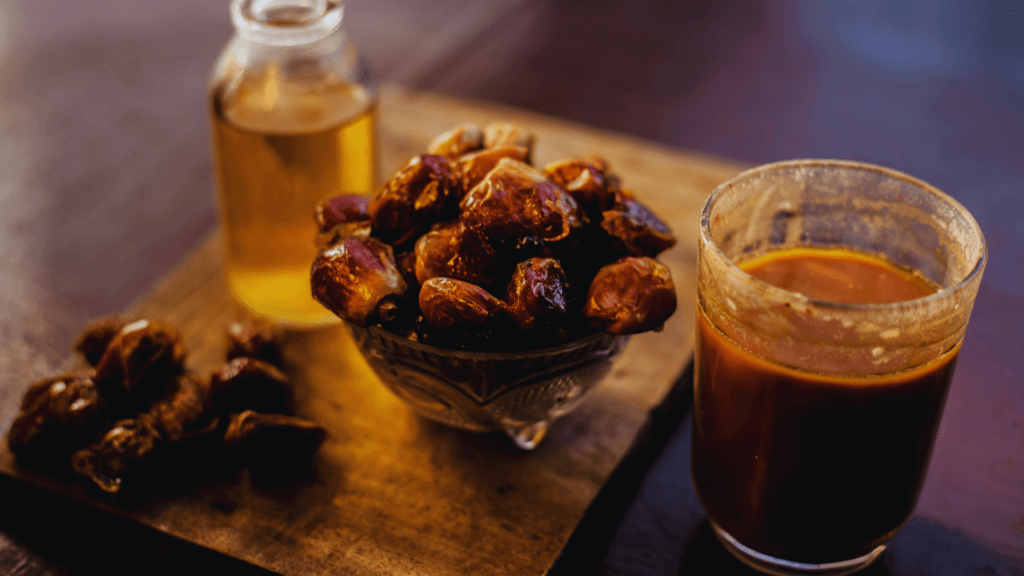
Glycemic Index: 47-55
Perhaps the most nutritionally rich option on our list, date syrup is simply whole dates concentrated into a thick, caramel-like syrup. Unlike most sweeteners that offer nothing but sweetness, date syrup retains many of the nutrients found in whole dates.
Health Benefits:
- Rich in potassium, magnesium, copper, and B vitamins
- Contains significant antioxidants—more than maple syrup or honey
- Provides fiber, slowing sugar absorption
- A 2015 study found it has antibacterial properties that may be superior to honey
Best Uses: Drizzling on oatmeal, pancakes, or yogurt; incorporating into energy balls or bars; using in salad dressings or marinades.
Cost Factor: ★★★☆☆ (Mid-range price, though you can make your own economically by blending soaked dates with water)
[Image suggestion: A close-up of dark, glossy date syrup being drizzled from a spoon onto a vibrant vegan breakfast bowl]
4. Yacón Syrup
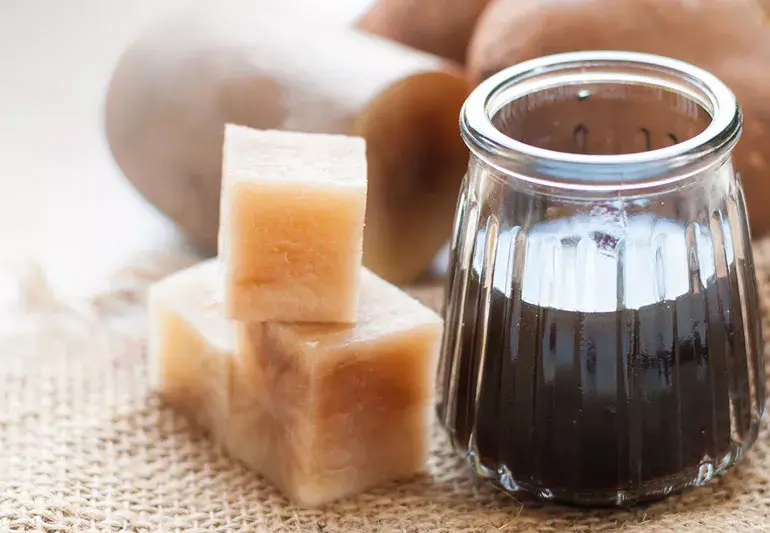
Glycemic Index: 1
This lesser-known syrup derived from the yacon root has been consumed in the Andean highlands for centuries but has only recently gained attention in health food circles. What makes yacon syrup special is its high concentration of fructooligosaccharides (FOS)—indigestible sugars that act as prebiotics, feeding beneficial gut bacteria.
Health Benefits:
- Contains 40-50% FOS, which functions as soluble fiber
- Supports digestive health by nourishing probiotic bacteria
- May help with constipation and improve mineral absorption
- Some studies suggest it may aid weight loss and improve insulin sensitivity
Best Uses: Drizzling on foods, mixing into beverages, or using in raw desserts. Note that it loses some beneficial properties when heated above 248°F (120°C).
Cost Factor: ★★★★☆ (One of the pricier options, but the health benefits justify the cost)
5. Pure Maple Syrup
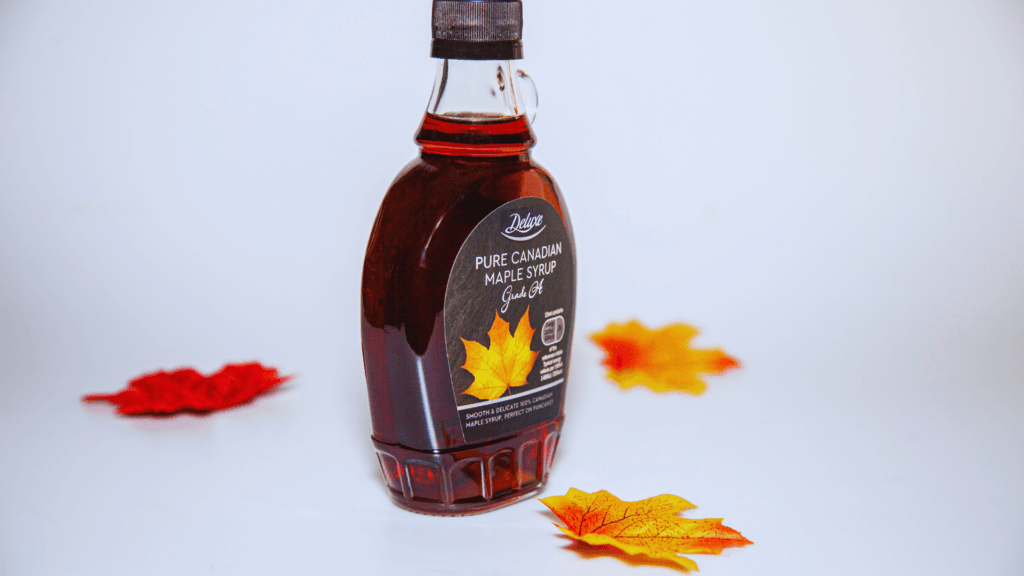
Glycemic Index: 54
Not to be confused with “maple-flavored” pancake syrups (which are often corn syrup with artificial flavoring), real maple syrup is harvested from maple trees and minimally processed. It contains over 24 different antioxidants and beneficial minerals.
Health Benefits:
- Contains manganese, zinc, potassium, calcium, and iron
- Provides compounds with anti-inflammatory properties
- Has a lower glycemic index than regular sugar
- Contains phenolic compounds that may help protect against cancer
Best Uses: Perfect for baking, glazes, sauces, dressings, and of course, drizzling on breakfast foods.
Cost Factor: ★★★☆☆ (Mid-range price, with significant quality variations)
6. Blackstrap Molasses
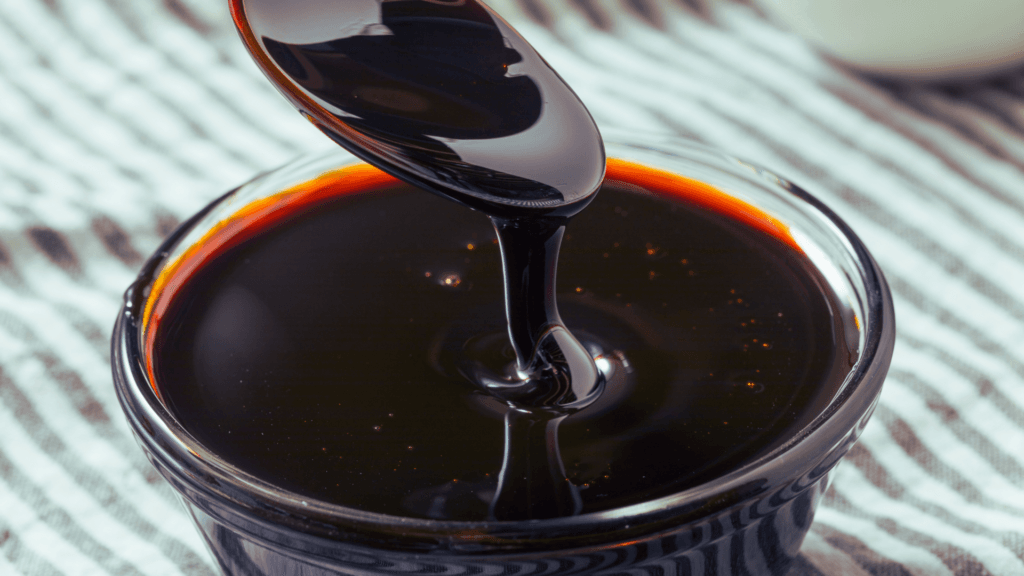
Glycemic Index: 55
The nutritional powerhouse of sweeteners, blackstrap molasses is what remains after sugar cane juice has been boiled three times to extract the maximum amount of sugar. While regular molasses is more refined, blackstrap retains significant minerals.
Health Benefits:
- Exceptionally high in iron (1 tablespoon provides about 20% of daily needs)
- Rich source of calcium, magnesium, potassium, and B vitamins
- Contains antioxidants that may help reduce cellular damage
- May help stabilize blood sugar levels despite its sweetness
Best Uses: Gingerbread, baked beans, BBQ sauces, and other recipes where its robust flavor is desirable. Try adding a small amount to smoothies for an iron boost.
Cost Factor: ★★☆☆☆ (One of the most affordable nutritious sweeteners)
7. Coconut Sugar
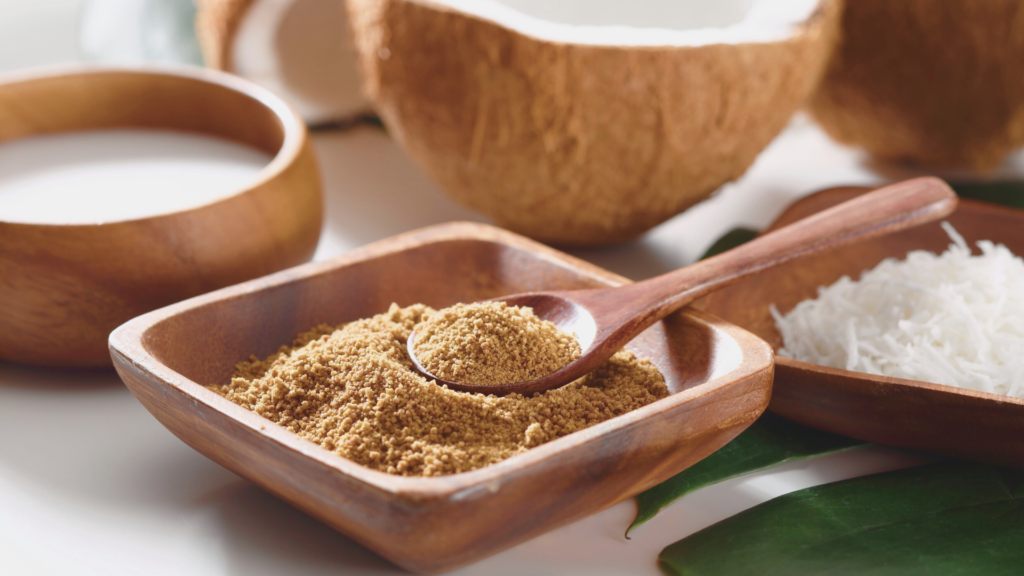
Glycemic Index: 35-54
Made from the sap of coconut palm blossoms, coconut sugar has a caramel-like flavor similar to brown sugar but with considerably more nutrients. It’s often marketed as more sustainable than cane sugar, though this depends greatly on production practices.
Health Benefits:
- Contains small amounts of minerals including iron, zinc, potassium, and calcium
- Includes inulin, a fiber that may slow glucose absorption
- Lower glycemic index than regular sugar
- Minimal processing compared to refined sugars
Best Uses: Can be substituted 1:1 for brown sugar in most recipes, making it one of the easiest healthy sweeteners to incorporate into baking.
Cost Factor: ★★★☆☆ (Moderately priced and becoming more affordable as popularity increases)
Comparison Table: Healthiest Vegan Sweeteners at a Glance
| Sweetener | Glycemic Index | Calories (per tbsp) | Key Nutrients | Best For | Cost |
| Monk Fruit Extract | 0 | 0 | Antioxidants (mogrosides) | Sugar-free baking, beverages | ★★★★☆ |
| Stevia | 0 | 0 | Antioxidants (in whole leaf form) | Beverages, no-bake recipes | ★★★☆☆ |
| Date Syrup | 47-55 | 60 | Potassium, magnesium, B vitamins, fiber | Drizzling, energy bars, marinades | ★★★☆☆ |
| Yacon Syrup | 1 | 20 | Prebiotics (FOS), potassium | Raw desserts, drizzling | ★★★★☆ |
| Pure Maple Syrup | 54 | 52 | Zinc, manganese, antioxidants | Baking, breakfast foods, glazes | ★★★☆☆ |
| Blackstrap Molasses | 55 | 47 | Iron, calcium, magnesium, potassium | Gingerbread, sauces, iron supplementation | ★★☆☆☆ |
| Coconut Sugar | 35-54 | 45 | Small amounts of minerals, inulin fiber | Direct sugar replacement in baking | ★★★☆☆ |
| Lucuma Powder | 25 | 30 | Beta-carotene, niacin, iron | Smoothies, raw desserts | ★★★★☆ |
| Brown Rice Syrup | 25 | 55 | Trace minerals | Binding ingredients, crispier baked goods | ★★☆☆☆ |
| Fruit Purees | 30-50 (varies) | 30-50 (varies) | Fiber, vitamins C and A | Baking, smoothies, sauces | ★☆☆☆☆ |
| Jerusalem Artichoke Syrup | 10-15 | 40 | Inulin (prebiotic fiber), iron | Tea sweetener, drizzling | ★★★★★ |
| Mesquite Powder | 25 | 16 | Protein, calcium, iron, lysine | Smoothies, raw desserts, spice substitute | ★★★★☆ |
| Barley Malt Syrup | 42 | 60 | Small amounts of B vitamins | Bread making, brewing, cereals | ★★☆☆☆ |
8. Lucuma Powder
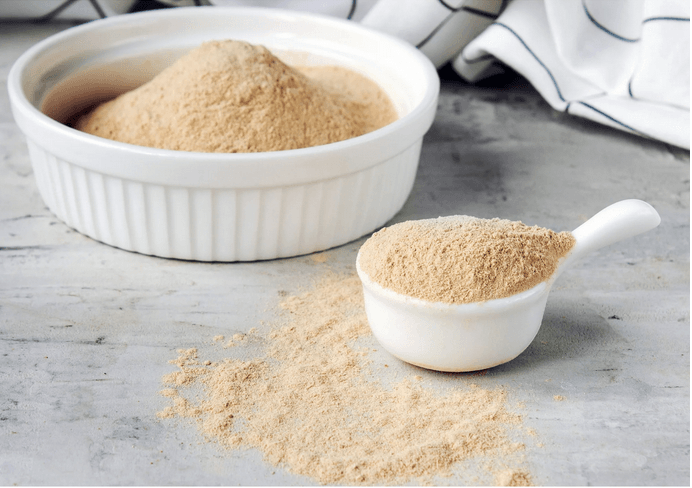
Glycemic Index: 25
This Peruvian superfood sweetener comes from the dried flesh of the lucuma fruit. With a naturally sweet maple-like flavor, it’s become popular in the raw food community as a nutritious sweetener that doesn’t spike blood sugar.
Health Benefits:
- Contains beta-carotene, iron, zinc, vitamin B3, calcium, and protein
- Low glycemic impact makes it suitable for those watching blood sugar
- Rich in antioxidants that may help reduce oxidative stress
- Provides a subtle sweetness without the negative effects of refined sugar
Best Uses: Smoothies, raw desserts, homemade ice cream, and baked goods. It works well as a partial flour substitute in recipes.
Cost Factor: ★★★★☆ (On the pricier side but considered a “superfood” for its nutritional density)
9. Brown Rice Syrup
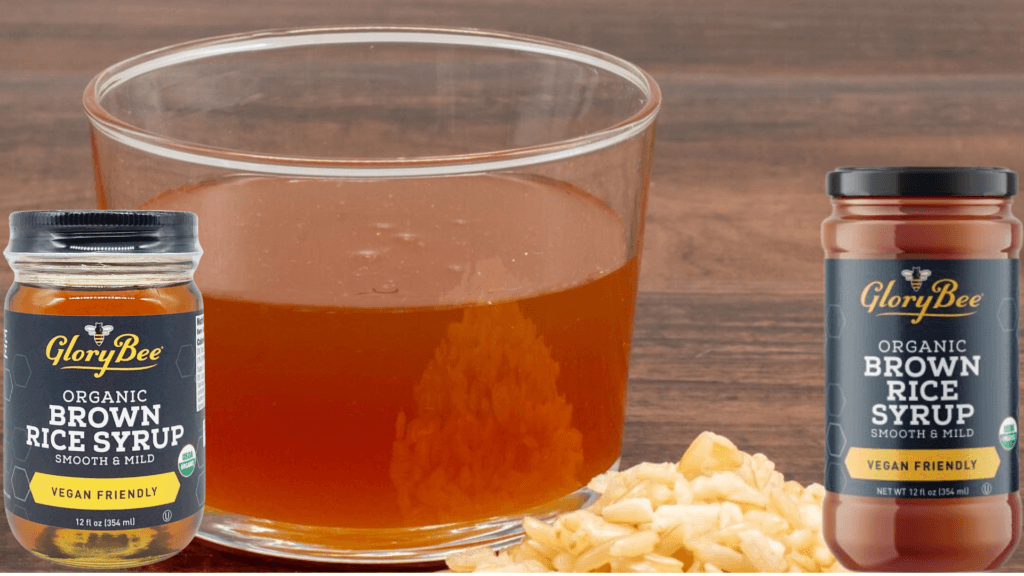
Glycemic Index: 25
Created by exposing cooked rice to enzymes that break down starches, this syrup has a mild, buttery flavor. While not as nutrient-dense as some others on our list, its relatively low glycemic impact makes it worth considering.
Health Benefits:
- Contains small amounts of minerals from rice
- Composed of complex carbohydrates that break down more slowly than simple sugars
- Vegan alternative to honey in recipes
- Helps bind ingredients in homemade energy bars
Best Uses: Granola bars, rice crispy treats, and recipes that benefit from its binding properties. Creates crispier cookies and brownies than sugar.
Cost Factor: ★★☆☆☆ (Reasonably priced and widely available in health food stores)
10. Fruit Purees
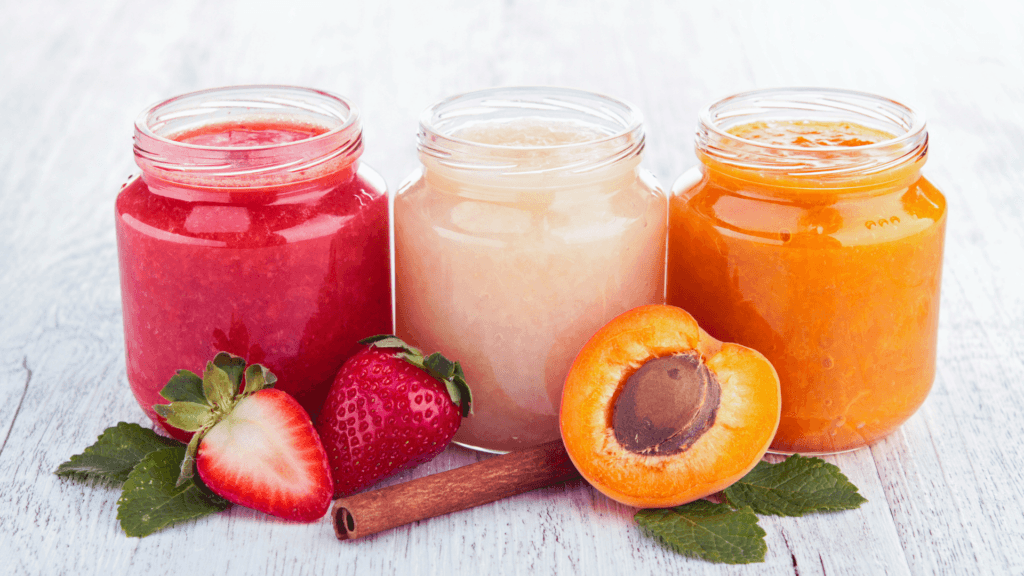
Glycemic Index: Varies (30-50 for most)
Whole fruit purees—particularly from apples, bananas, and dates—are among the most natural sweeteners available. They provide sweetness along with fiber, vitamins, and minerals.
Health Benefits:
- Contains the fiber, vitamins, and antioxidants of whole fruits
- Fiber helps slow sugar absorption
- No empty calories—nutrients come with the sweetness
- Can replace oil in some baking recipes, offering multiple benefits
Best Uses: Baking muffins, breads, and cakes; creating sauces; sweetening oatmeal; making homemade energy bars.
Cost Factor: ★☆☆☆☆ (Most economical option, especially if making your own)
[Image suggestion: Various fruit purees in small glass bowls showing different colors – banana, apple, and date purees with whole fruits nearby]
11. Jerusalem Artichoke Syrup
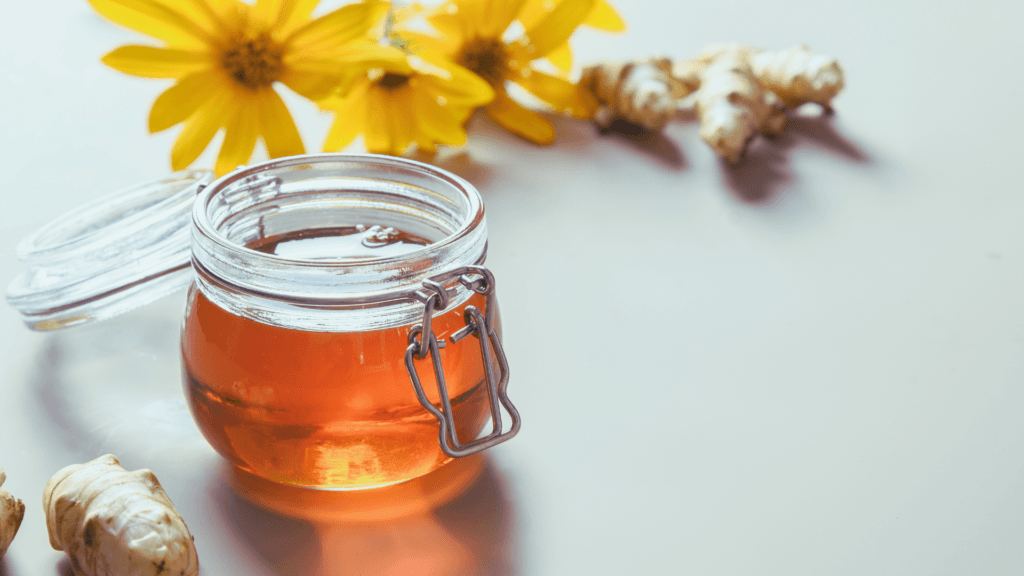
Glycemic Index: 10-15
This rare gem in the sweetener world comes from the Jerusalem artichoke (actually a sunflower tuber, not an artichoke). Its primary sugar is inulin, which functions as a prebiotic fiber rather than being absorbed as sugar.
Health Benefits:
- Extremely high in inulin, which feeds beneficial gut bacteria
- One of the lowest glycemic sweeteners available
- May help improve calcium absorption
- Contains iron and potassium
Best Uses: Tea sweetener, drizzled on pancakes, or used in raw food recipes. Use sparingly at first, as too much inulin can cause digestive discomfort for some people.
Cost Factor: ★★★★★ (The most expensive option on the list, but unique in its properties)
12. Mesquite Powder
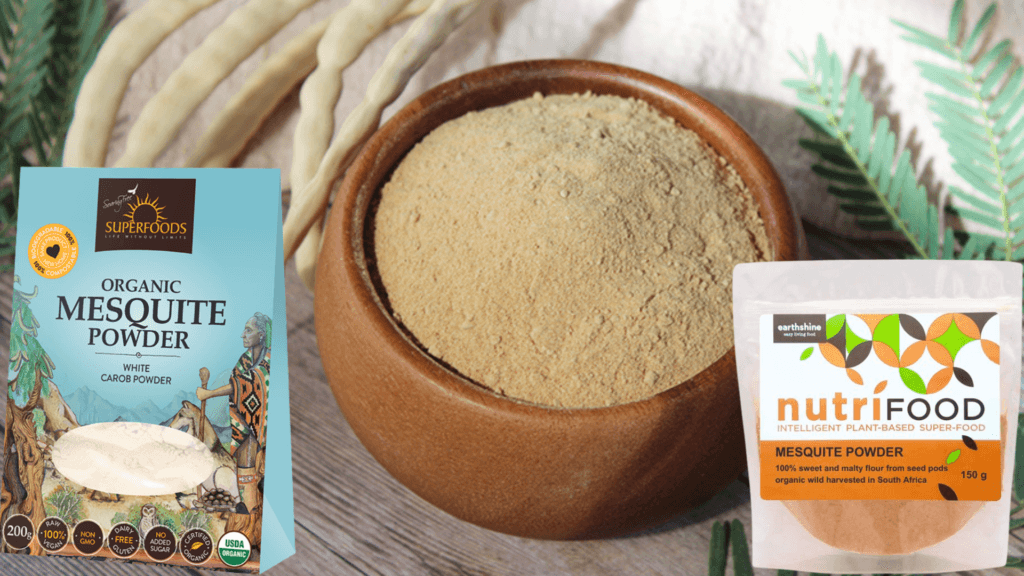
Glycemic Index: 25
Ground from the pods of the mesquite tree, this sweetener has a unique caramel and chocolate-like flavor with hints of cinnamon. Popular in raw food circles, it’s both nutritious and low glycemic.
Health Benefits:
- Contains protein (16%), which is rare for a sweetener
- High in dietary fiber (25%)
- Good source of calcium, iron, lysine, and potassium
- Stabilizes blood sugar due to fiber content
Best Uses: Sprinkled into smoothies, chia puddings, raw desserts, or used as a partial flour substitute in baking. Works well combined with cacao for a chocolate-caramel flavor profile.
Cost Factor: ★★★★☆ (Expensive but concentrated, so a little goes a long way)
13. Barley Malt Syrup
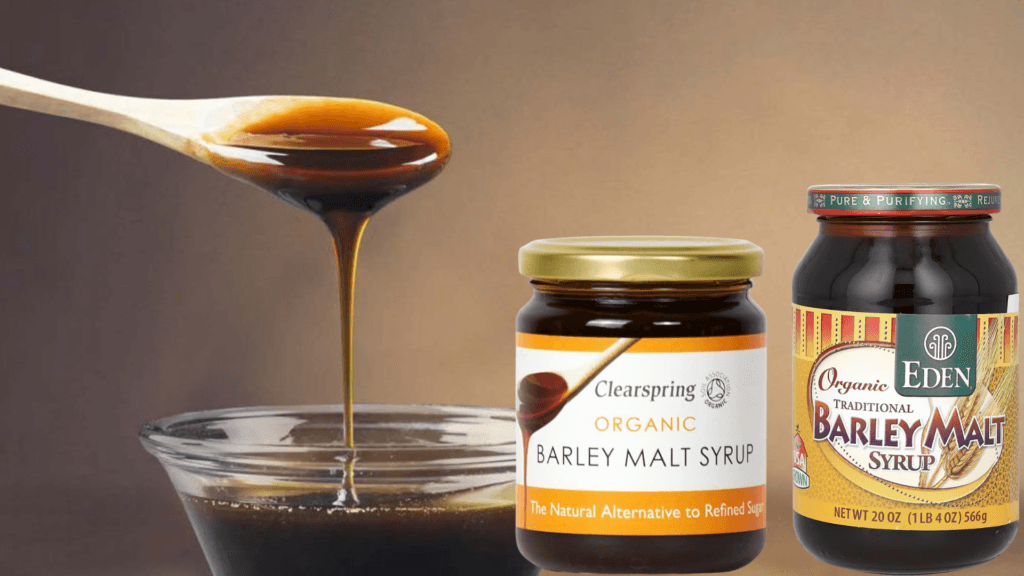
Glycemic Index: 42
Made from sprouted barley, this thick, dark syrup contains complex carbohydrates that metabolize more slowly than simple sugars. Its rich malt flavor works particularly well in certain recipes.
Health Benefits:
- Contains small amounts of B vitamins and minerals
- Lower glycemic impact than regular sugar
- Half as sweet as sugar, encouraging more moderate sweetener use
- Maltose breaks down more slowly than sucrose or fructose
Best Uses: Homemade breads, cereals, and malted desserts. Essential for authentic bagels and pretzels. Note: Contains gluten, so not suitable for those with celiac disease or gluten sensitivity.
Cost Factor: ★★☆☆☆ (Reasonably priced for its specialty uses)
Sweeteners to Avoid (And Why)
Not all sugar alternatives are created equal. Here are a few that might seem healthy but come with drawbacks:
- Artificial Sweeteners (Aspartame, Sucralose, Saccharin): Highly processed and linked to digestive issues.
- High-Fructose Corn Syrup: Contributes to insulin resistance and metabolic disorders.
- White Sugar (Even if Organic!): Still refined and stripped of nutrients.
The Sweet Takeaway
Ditching refined sugar doesn’t mean sacrificing flavor—or your vegan values. Whether you’re sipping a stevia-sweetened latte or baking with nutrient-packed blackstrap molasses, these 13 sweeteners prove you can have your cake and eat it too (vegan, of course). Start small—swap one out in your next recipe—and see how sweet sustainable living can be.

